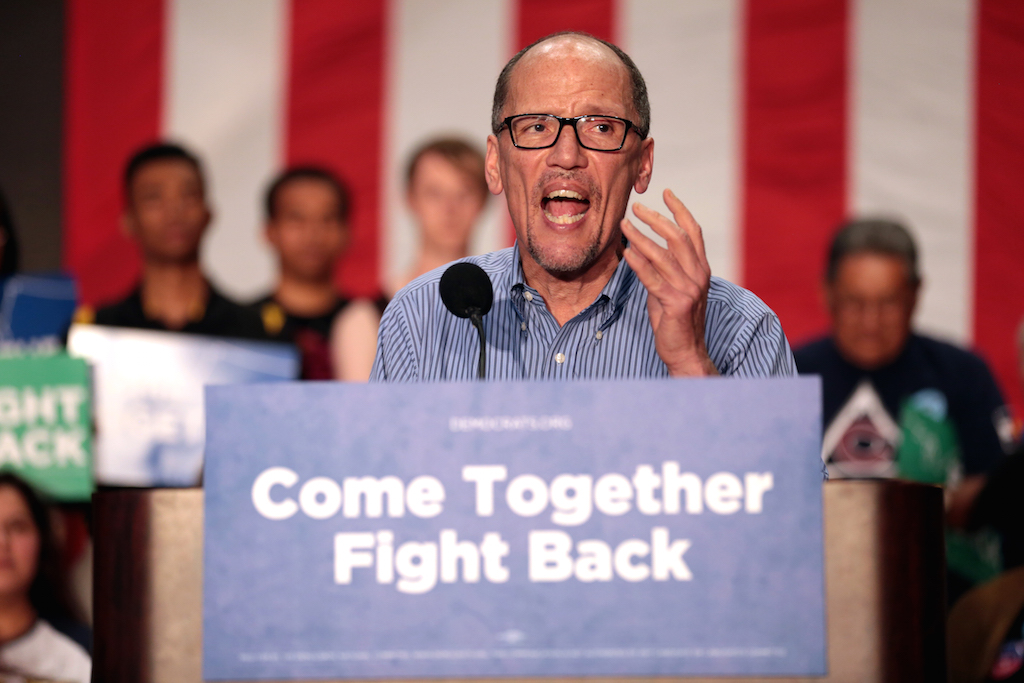Independents Seeking Presidency Might Be Barred From Democratic Primaries
The Democratic National Committee will vote in August on a rule calling for candidates to be Democrats in order to run for president in the party's primaries. In addition, the elimination of superdelegates will be considered. Democratic National Committee Chairman Tom Perez (Gage Skidmore / Wikimedia Commons)
Democratic National Committee Chairman Tom Perez (Gage Skidmore / Wikimedia Commons)
Bernie Sanders may have garnered millions of votes, despite his unusual status as an independent, when he ran in the 2016 Democratic presidential primaries, but that might not be possible for candidates hoping to borrow from his playbook in the future.
According to a draft rule change proposed Friday by the Rules and Bylaws Committee of the Democratic National Committee, future presidential candidates would have to identify themselves as Democrats to seek to Democratic nomination.
The rule, Yahoo News reports, states:
At the time a presidential candidate announces their candidacy publicly, they must publicly affirm that they are a Democrat. Each candidate pursuing the Democratic nomination shall affirm, in writing, to the National Chairperson of the Democratic National Committee that they: A. are a member of the Democratic Party; B. will accept the Democratic nomination; and C. will run and serve as a member of the Democratic Party.
The proposed change was met with accusations that the party was trying to shut out Sanders, in particular, as well as other outsider candidates who may consider throwing in with the Democrats in the future. Mark Longabaugh, a senior adviser to Sanders’ 2016 presidential campaign, told Politico that he was “stunned that the Democratic Party’s rules committee would want to try to make the Democratic Party an exclusive club, for which we want to exclude voters and large segments of the American electorate.”
Still, as Yahoo News points out, the DNC’s proposed rule probably wouldn’t affect Sanders directly, and, if approved, it could also increase the chances that one of his favorite reforms would be adopted.
First, Sanders has plenty of time to register as a Democrat, should he want to run for president again. Second, while the rules committee considers the party affiliation rule change, it is also mulling the elimination of superdelegates—specially appointed delegates to the national party convention who are empowered to support any presidential candidate they choose, regardless of which candidate wins their state’s primary.
Sanders, Yahoo notes, “viewed these superdelegates as a way for the Democratic Party establishment to control the nominating process irrespective of the will of the party’s voters.” After the 2016 election, when the DNC established a unity commission to attempt to unite the fractured Democratic Party, eliminating superdelegates was a major priority.
The full DNC will vote on both proposed rules in August.
Your support matters…Independent journalism is under threat and overshadowed by heavily funded mainstream media.
You can help level the playing field. Become a member.
Your tax-deductible contribution keeps us digging beneath the headlines to give you thought-provoking, investigative reporting and analysis that unearths what's really happening- without compromise.
Give today to support our courageous, independent journalists.






You need to be a supporter to comment.
There are currently no responses to this article.
Be the first to respond.